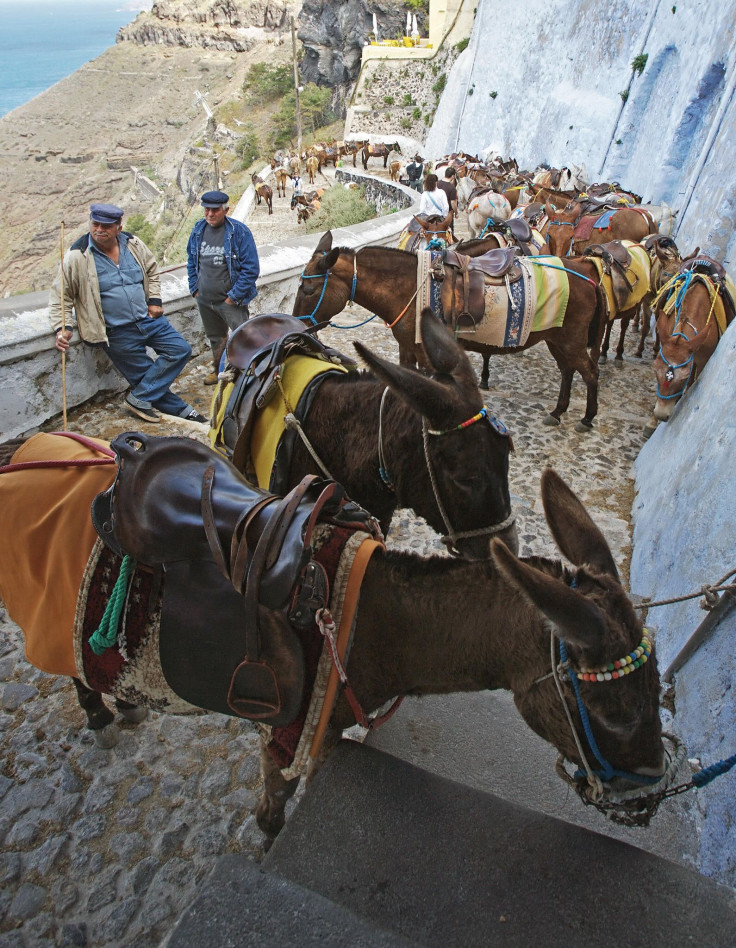‘Overweight’ Tourists Banned From Riding Donkeys In Santorini, Greece

Greece banned “overweight” tourists from riding donkeys in Santorini after animal rights activists complained the animals were suffering from spinal injuries and open wounds due to the same, reports said Wednesday.
Since images of the donkeys carrying extremely obese tourists up the steep slopes went viral, lawmakers in Greece pledged to do more to help the animals. Activists also complained these animals were treated badly by their owners.
The Greek Ministry of Rural Development and Food published a new set of regulations regarding the animal’s wellbeing after they received "multiple complaints and publications on the living conditions and wellbeing of domestic animals” following the issue being covered by the media in July.
Sightseers at the tourist spot often paid to ride donkeys to avoid climbing up steep slopes from the shore to the island's main town. But transporting heavier tourists have taken a toll on the health of the animals, CNN reported.
According to the new regulations, people wishing to ride the donkey will have to weigh less than 100 kilograms (220 pounds) or they have to be one-fifth of the donkey's body weight.
The animals "should not be loaded with a weight excessive in size, age or physical condition," the Greek Ministry instructed.
"While this [the bulletin] means they will stop carrying fat tourists, the donkeys are still forced to carry cement, appliances, and all sorts of heavyweights,” Maria Skourta, leader of Athens branch of Direct Action Everywhere, said.
Cars don’t fit through the narrow pathways in Santorini, due to which donkeys are the preferred means of transport.
After the media coverage of the situation in July, a heavy backlash on social media followed. A petition which called for an end to the use of donkeys as transportation received more than 100,000 signatures, a report said.
In June, an activist group familiar with the situation, the Donkey Sanctuary said it was "dismayed" by the conditions donkeys were kept in. They met with representatives from the island in August.
The new guidelines also stressed donkeys were to be exercised once a day for at least half an hour. They were also to be provided with a continuous supply of drinking water.
People for the Ethical Treatment of Animals (PETA) condemned the guidelines as a "throwaway" gesture which "won't prevent the daily suffering that these donkeys endure."
"Donkeys can still be forced to carry a person weighing 15 stone 10 pounds (100 kilograms) up more than 500 steep steps four to five times a day," Mimi Bekhechi, PETA United Kingdom's director of international programs, said.
Santorini sat atop a dormant volcano caldera, and was known for its incredible sunsets. In recent years, the place has seen tourism increase dramatically thanks to its popularity with cruise ship tourists.
© Copyright IBTimes 2025. All rights reserved.





















